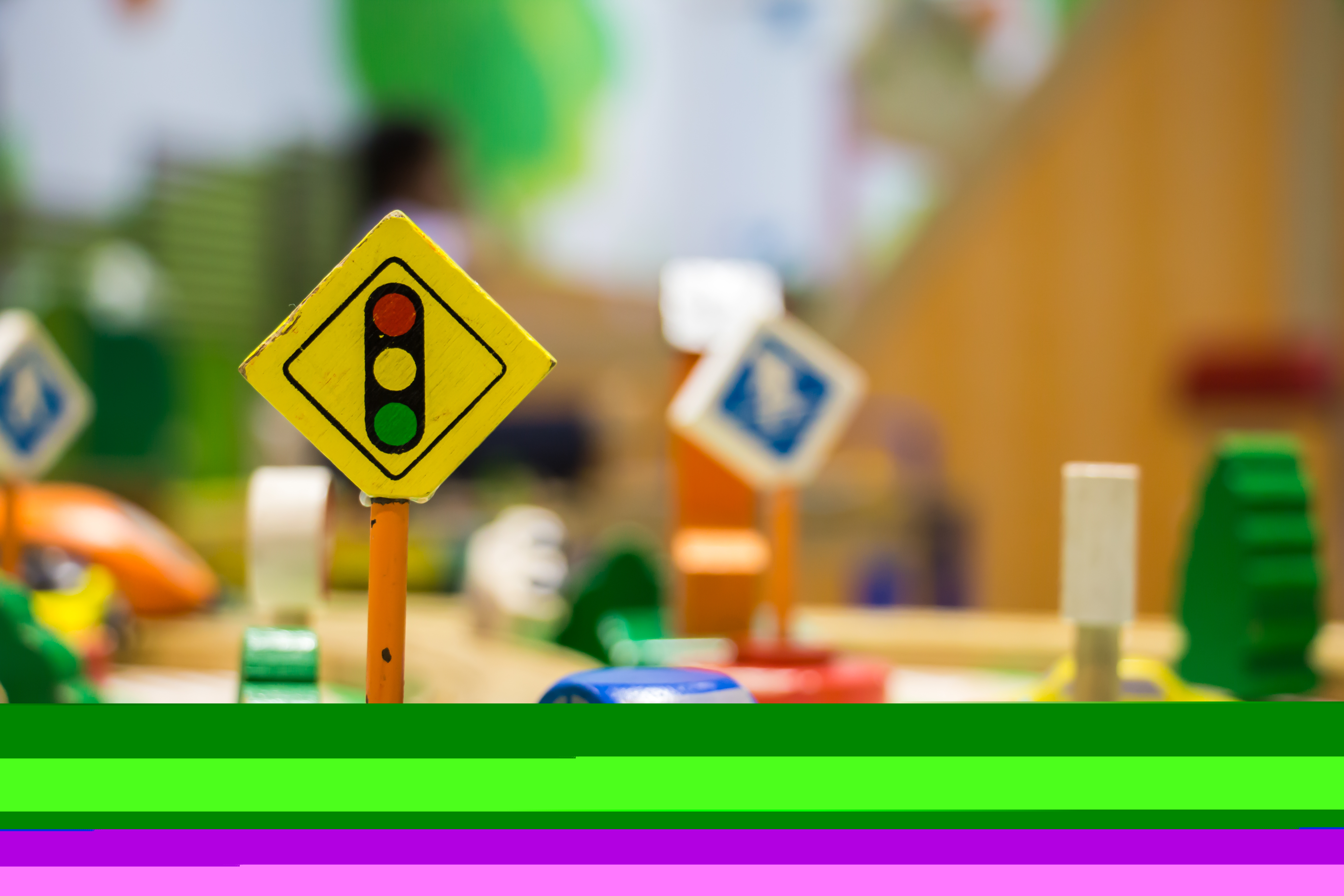Vocabulary Building Normal Community Worksheets for Ages 4-7
4 filtered results
-
From - To
Enhance your child's vocabulary with our engaging Vocabulary Building Worksheets designed specifically for ages 4-7! These fun and interactive worksheets focus on the theme of community, helping young learners expand their linguistic skills while exploring important concepts. With colorful illustrations and age-appropriate activities, children will enjoy learning words related to their surroundings, from local places to community helpers. Our resources promote language development and comprehension, making learning enjoyable and effective. Perfect for classroom use or at-home learning, these worksheets encourage kids to connect with their environment and foster a love for words. Download today and watch your child's vocabulary flourish!
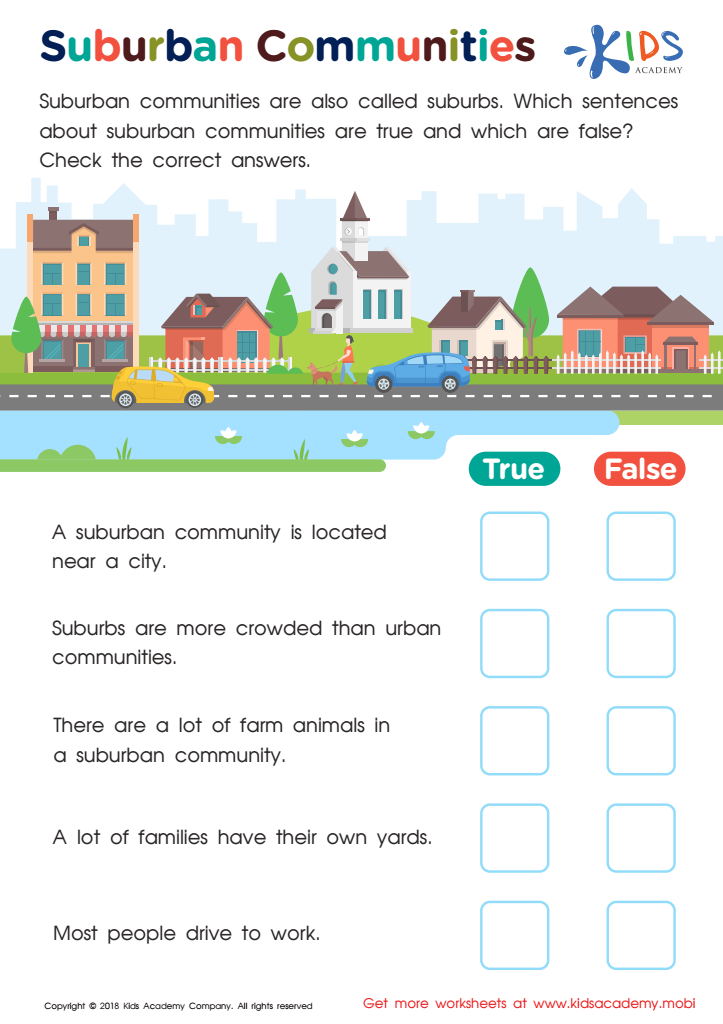

Suburban Communities Worksheet
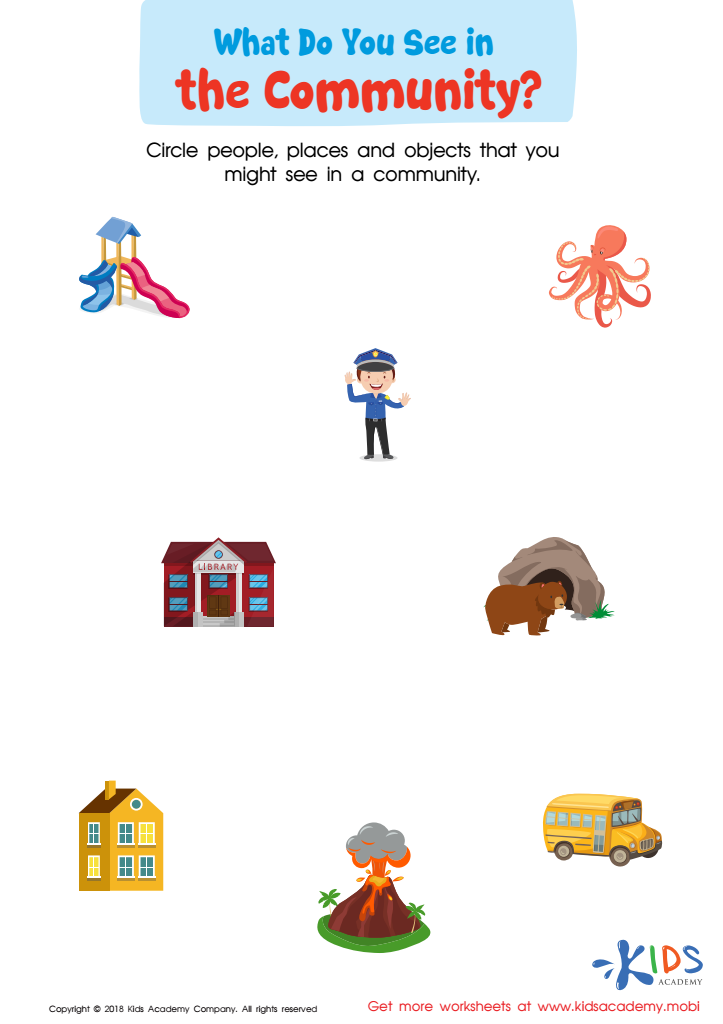

What Do You See in the Community Worksheet
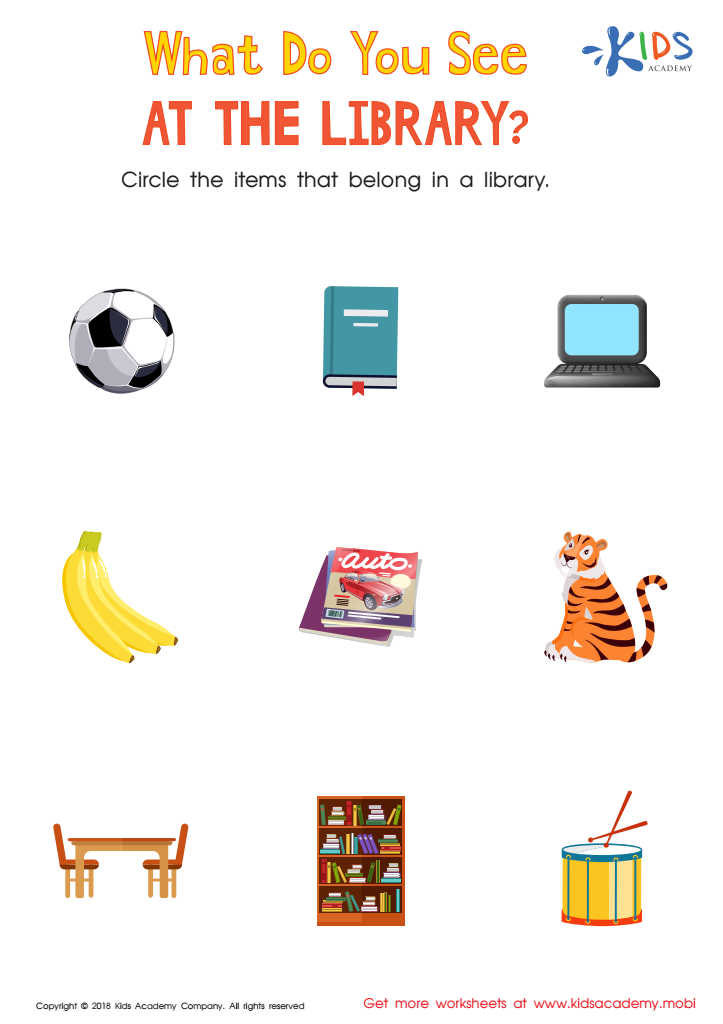

What Do you See at the Library? Worksheet
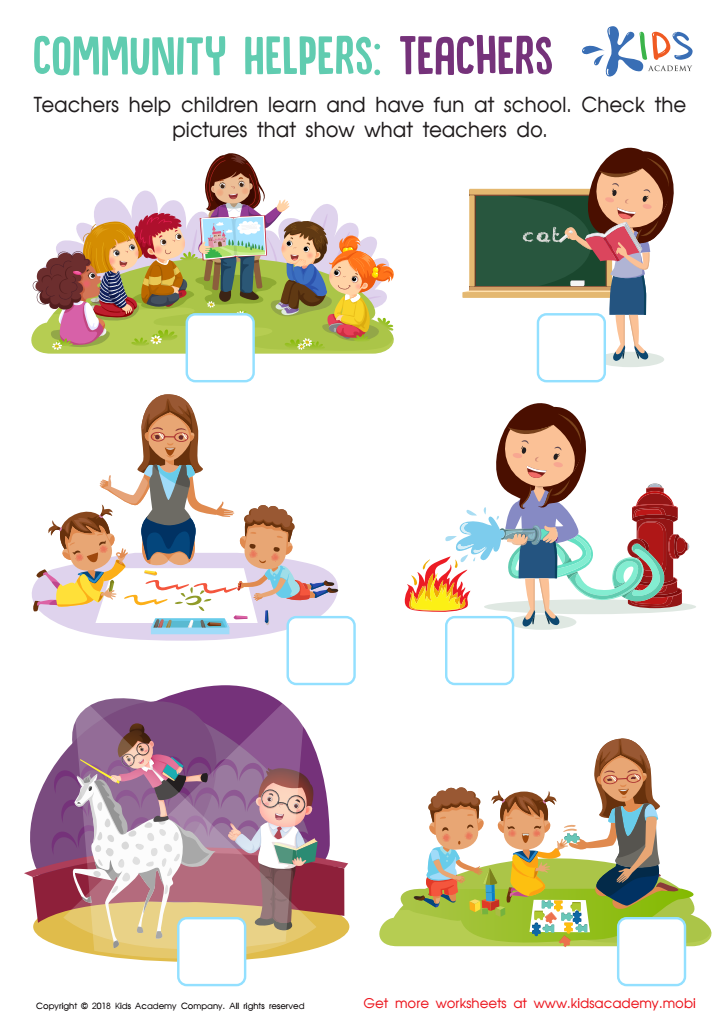

Teachers Community Helpers Worksheet
Vocabulary building in early childhood is crucial for several reasons, especially within a normal community setting for children aged 4-7. During these formative years, a child's brain is like a sponge, absorbing language, concepts, and communication skills. A rich vocabulary lays the foundation for reading, writing, and overall academic achievement. Children with expansive vocabularies tend to have better comprehension skills, higher self-esteem, and more effective communication abilities.
Parents and teachers play a pivotal role in this developmental stage. Engaging children in conversations, reading daily, and introducing new words contextually can significantly enhance their language skills. A vocabulary-rich environment encourages curiosity and fosters a love of learning.
Moreover, in a diverse community setting, children interact with peers from different backgrounds, which can lead to varied linguistic experiences. This social aspect further enriches their vocabulary as they learn to express themselves in diverse ways and understand different perspectives.
In essence, prioritizing vocabulary building is not just about language acquisition but cultivating confident, articulate individuals. It sets the groundwork for lifelong learning and successful social interaction, equipping children for academic challenges and fostering genuine connections within their communities. Investing in vocabulary development is an investment in a child's future.
 Assign to My Students
Assign to My Students


